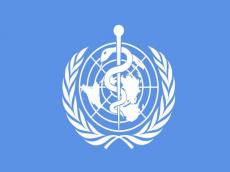Today.Az » Society » WHO: Epidemiological and immunization measures in Azerbaijan at a high level
02 April 2019 [17:15] - Today.Az

By Azernews
By Mirsaid Ibrahimzade The World Health Organization (WHO) highly appreciated the measures on epidemiological control and immunization carried out in Azerbaijan against measles and rubella, Javahir Suleymanova, specialist in infectious diseases at the WHO office in Azerbaijan, told Trend. The WHO mission visited Azerbaijan as part of the immunization program familiarized itself with the organization of the laboratory's work on the diagnosis of measles and rubella, and the situation on epidemiological control. The experts concluded that the work in this area is carried out in accordance with the recommendations of WHO. Suleymanova added that the experts also studied the work of the laboratory for the diagnosis of measles and rubella at the Ministry of Health. Further, she noted that this laboratory is annually accredited by WHO, and experts have facilitated to prepare documents for the next accreditation. Health Minister Ogtay Shiraliyev signed an order to conduct measles immunization activities in Azerbaijan. According to the order, measles immunization activities will be carried out among the population aged 20-40 in Baku and other cities and regions of the country where a measles outbreak is registered in March-April months. Measles is a highly contagious infectious disease caused by the measles virus. Symptoms usually develop 10–12 days after exposure to an infected person and last 7–10 days. Measles is an airborne disease which spreads easily through the coughs and sneezes of infected people. Rubella is an infection caused by the rubella virus. This disease is often mild with half of people not realizing that they are infected. Rubella is usually spread through the air via coughs of people who are infected. People are infectious during the week before and after the appearance of the rash. Rubella is a common infection in many areas of the world. Each year about 100,000 cases of congenital rubella syndrome occur. Rates of disease have decreased in many areas as a result of vaccination. Additionally, touching upon Azerbaijan, the last outbreak of infectious disease which was registered in Azerbaijan was the A/H1N1 virus, but it is not a new virus and is not designated as “swine flu”. Outbreak was being observed during January and February months. Both the A/H1N1 and A/H3N2 viruses tend to cause seasonal flues. This flues are being observed in Europe, Georgia and Azerbaijan. There is also positive statistics for Azerbaijan regarding infectious diseases. As an example, the number of tuberculosis patients in Azerbaijan last year decreased by three percent compared to 2017.As a result of involvement in the active treatment of identified patients, providing them with first-line and second-line medications, the death rate from tuberculosis decreased by 6.7 percent in 2018.
|